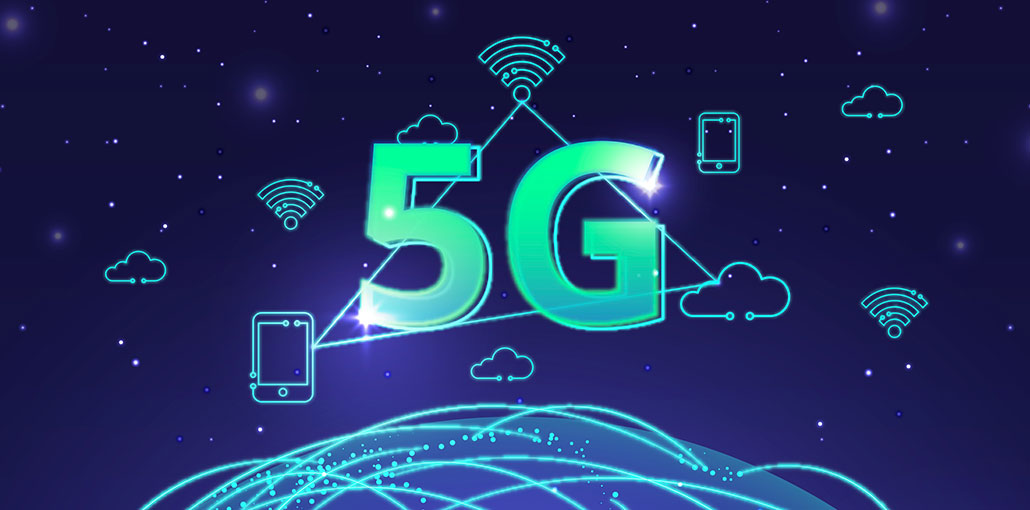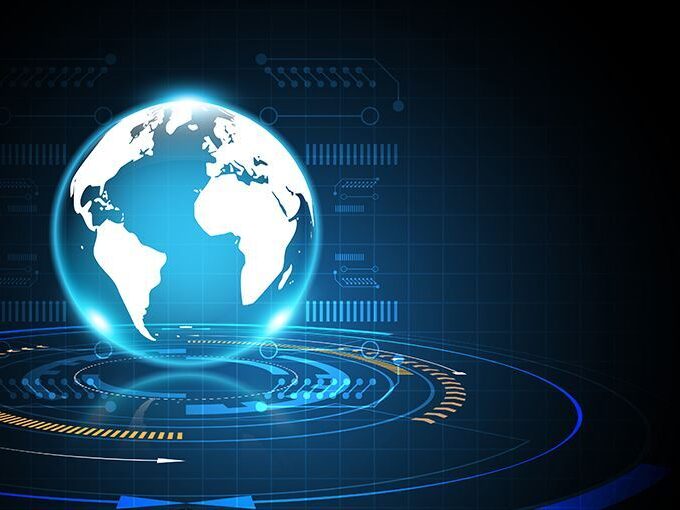It was projected that by 2025 there would be 1.2 billion 5G connections, covering 34% population. Although the pandemic attempted to quell the hype surrounding 5G, it is still the most talked-about tech phenomenon of 2020.
5G will open up a whole new world of possibilities that will transform the art of the possible.
My Take — 5G will open new doors for enterprises to service and innovate products and services, creating new revenue streams and customer segments.
This article will discuss how 5G will transform certain industries and their business cases.
1. Healthcare
According to a New England Journal of Medicine article, healthcare holds 30% of all world’s data. Each patient generates approximately 80MB of data per year. How 5G Wireless and Concomitant Technologies Will Revolutionize Healthcare? The authors discussed four main problems that have affected the healthcare industry: lack of a patient-centric system; deficiency in personalization; no focus on data.
Experts believe 5G’s low latency capability, high data collection, and large capacity will solve all of these problems. As hospitals move to 5G, they will be able to spend less time collecting, transferring, and managing data in real-time. They also have the opportunity to provide remote patient care access via which allows mobile networks to support real-time high-quality video and enhanced cyber security through cloud data centers. The wearable technology, which is compatible with 5G will make it easier for patients and their doctors to communicate remotely.
Personally, I cannot wait to see the progress that 5G makes in transforming the Healthcare sector. This Pandemic has placed excessive pressure on our para-medical and medical community. These frontline warriors need all the support we can.
Also read: What is The Impact of IoT On The Healthcare Industry?
2. Retail
Statista reports that by 2022, retail revenues will rise to 6.54 trillion US Dollars. Retail chains around the globe will be transformed through proper connectivity — A reliable and fast network and advanced AR/VR use cases. The warehouses need to have the necessary network capability to support new-age applications.
The question is: How can 5G help the retail industry?
- 5G will increase the brand’s engagement with customers by enabling immersive technology such as Augmented Reality and Mixed Reality.
- In-Store Augmented Experiences, such as Magic Mirror and face-to-face virtual shopping assistance.
- To simplify target marketing and enable security measures against fraudulent behavior and transactions, facial and object recognition solutions
- Smart and sustainable energy management like smart lighting to maximize energy use in-store.
3. Public Sector
Compliance with federal laws is essential for 5G’s growth. This would be the top concern for the public sector. This is The public sector is aware of the potential impact of 5G, but local governments must understand the technology to get the best out of it, while still adhering to federal laws. . These laws will be triggered due to the constant threat that data breaches will occur because of the large amount of data collected by technology.
Once the technology is available to the government, we can talk about the following use cases.
- Enhanced mobile broadband will improve connection speeds for roles such as law enforcement officers, human services caseworkers, and postal workers.
- Ultra-reliable, Low-latency Communications will, as its name implies, provide high reliability and low latency to support the development of smart ports and smart military stations and expand the capacity of the health system through remote surgery.
- Massive machine-type communication to reimagine public works such as real-time information about leakages and blockages and efficient resource allocation.
4. Media
According to an Intel report, the media and entertainment experiences that are possible by Intel were projected to be: 5G could generate up to $1.3 trillion in revenues by 2028. The 5G technology stack opens new avenues to consumers who want a richer experience with media. Smartphones are becoming more popular as viewing devices and control systems for in-home and industrial networks. Does this include lightning-fast data speeds? Massive bandwidth And low-network latency.
Here’s a sneak peek at 5G and how it will transform entertainment and media.
- Shared live and on-demand entertainment experiences that are location-based, such as concerts, sporting events, or movie theatres, across time zones and continents.
- Acceleration to Mixed Reality, Augmented Reality and Virtual Reality for immersive content consumer experience
- Interactive gaming reimagined mixed reality and the introduction of mobile cloud gaming.
- Content creators are focusing on increasing brand loyalty and better conversion.
5. Manufacturing
Let’s look at some use cases for industrial operations to understand how 5G technology will transform the manufacturing industry.
- Edge computing will allow real-time insights through edge computing with faster wireless communication and better reliability
- High-quality, real-time video feed for surveillance.
- Remote control for the distributed production line at a central command center.
- The secure and reliable network has improved monitoring and alerting systems.
- Remote maintenance and training solutions with high-resolution AR/VR technology.
- 5G adoption can go beyond industrial operations to extend seamlessly across the entire supply chain.
6. Supply Chain
The 5G technology stack, in addition to its impressive speed, is also focused upon device density and latency. This is expected to revolutionize the way that industries operate. This extends to disrupting supply chains. My blog contains my thoughts on how the pandemic has created competition within supply chains.
Let me show you the supply chain use cases 5G can enable. A reliable logistics operation can be set up by industries. This will allow for automated labeling, tracking, and recording of shipments, as well as manual track and trace. This will allow them to solve problems such as lost cargo, misplaced containers, and counterfeiting. 5G will improve warehouse management by enabling remote maintenance and control and deploying autonomous vehicles.
5G is the future of supply chain management. It provides transparency across channels to ensure that control remains in the central command node.
Also read: The Impact of Artificial Intelligence In Smart Home Automation
7. Future Home
Today’s smart home technology is fragmented. 5G will solve this problem. 5G will provide a seamless experience for all of our home technology — including our favorite room temperature, our preferred light shades, entertainment suites, education suites, health devices, and security features. The technology stack will not only focus on seamless device orchestration but also enhanced data privacy and security from a moral point of view.
8. AR/VR
Ericsson reports that AR will be almost half of all revenues from immersive video formats by 2030 according to a report. The most exciting thing about AR’s use cases is the ability to transform an existing experience in-venue into a digital one.
Mixed Reality and AR/VR/Mixed reality offer a compelling opportunity for experiences such as concerts, movie premieres, and sporting events. Many tech junkies like me are eager to get their hands on it.
9. Transportation
5G will simplify logistics! Through multiple use cases, 5G has proven to be a benefit for the transportation industry. Smart sensors can monitor the road condition and determine the best time to repair it. Sensors can detect potholes and alert municipalities to take preventative steps. Cameras will be able to give real-time insights into the traffic flow, allowing pedestrian and vehicle traffic to be diverted for safety and efficiency. 5G will speed up the adoption of autonomous cars. 5G will allow for the real-time response on vehicle safety status, and autonomous controls to avoid collisions.
10. IoT
New business opportunities for IoT have been created by the fifth-generation cellular standard. It is not easy to create an IoT solution that includes cellular connectivity. This realization has been made by the tech industry. It requires a combination of expertise in embedded systems, connectivity, and antenna design. However, I believe that 5G will offer telecom operators a similar opportunity.
What is the future business uses for 5G-powered IoT devices? An improved asset tracker is used to monitor the energy consumption and product condition periodically. This helps to track whether the product conforms to safety and compliance regulations. The business-critical application allows for command and control over small factory robots and AGVs. Third, connecting assets can be found in cafes and restaurants, brownfield areas, as well as the cloud to convert them into smart devices.
11. Storage
There are many use cases for the storage industry because of the camaraderie that 5G and flash storage offer. First, will enable virtual 5G networks within the cloud in order to guarantee bandwidth, latency, and quality of service. The second is to be the backbone for high-resolution video streaming by enabling a switch from 4K up to 8K and beyond. Third, introduces full-on cloud gaming that allows you to stream and play video games from anywhere.
5G is theoretically a champion in addressing the current challenges facing these industries and focuses on seamless productivity. 5G will open new doors for service and product innovation in enterprises, creating new revenue streams and customer segments at scale. It is evident that ultra-reliable, low latency is the currency of the network world. This will allow for new capabilities in many industries previously unimaginable.










Leave a comment